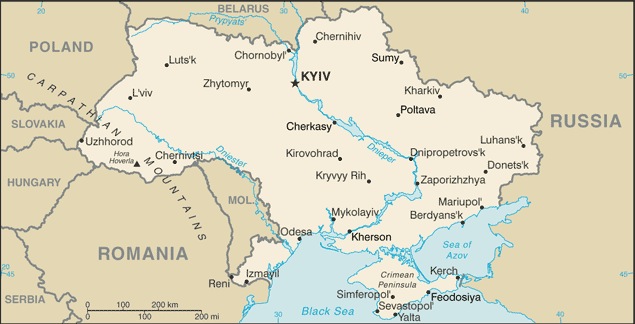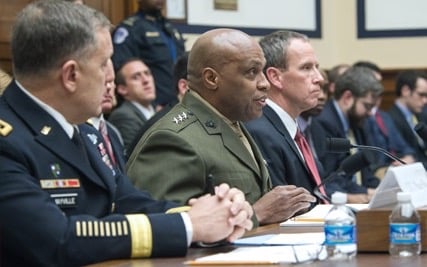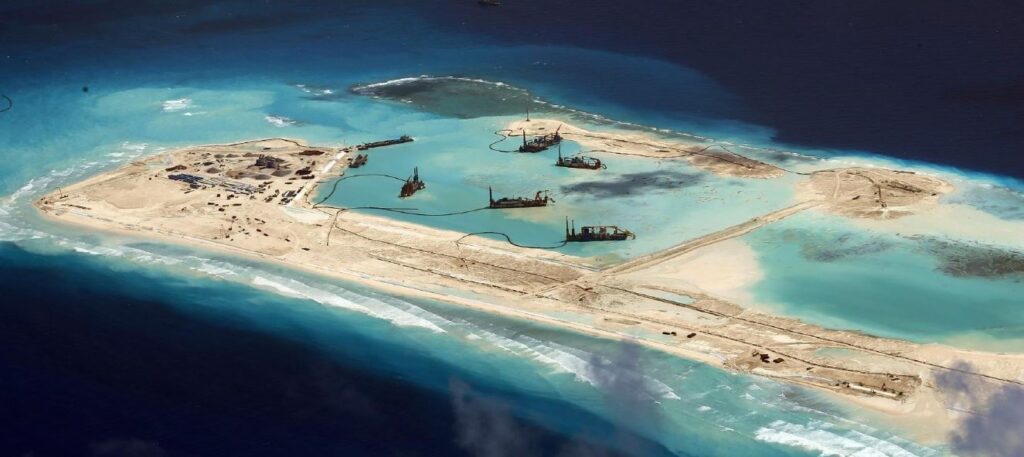McCain Points To ‘Dramatic Change’ In Chinese-Built Islands
Posted on
WASHINGTON: What began with a tiny artificial island built by China to stake a concrete claim in the South China Sea is fast on its way to becoming 600 acres of at least seven islands spread across the South China Sea. One of the most impressive is so-called Fiery Cross Island, the permanent structure above complete with an air strip and, perhaps, the ability to permanently station advanced weapon systems there to patrol the skies and seas.
Sen. John McCain made a point of asking Director of National Intelligence James Clapper about the Chinese actions just before the end of this morning’s Senate Armed Services Committee hearing on worldwide threats, calling the Chinese actions “a rather dramatic change.”
DNI Clapper told the SASC “this is a worrisome trend of the Chinese because of the tensions this is going to create in the South China Sea. They have been very aggressive about it.”
The biggest worry about these efforts by the Chinese is that they could base advanced aircraft and ships at some of these locations, trying to enforce their so-called Nine-Dash Line claiming most of the South China Sea. That would grant them the presumptive ability to block international shipping in an area every other country in the region — including the United States — says are international waters. It would also provide China much greater range to project power through the region.
“While Washington is focused on happenings in Europe and the Levant, China has spent the last year quietly building 600 acres of tiny islands across the South China Sea,” a Senate staffer said in an email. “As Director Clapper alluded to in his testimony this morning, they could use these islands to sustain a presence far from China’s mainland, deploying fighters, naval or fishing administration ships, logistics hubs, and even to deploy land-based anti-ship or anti-air missiles. Right now, we appear to just be watching all of this unfold while sending soft messages of our disapproval to Beijing and calculating that the costs of preventing further expansion are just too high. In another six months we could wake up to a far different operational and diplomatic situation in this maritime highway, where the Philippines and Vietnam are left with tangible reasons to question the resolve of our ‘rebalance’ and the field goal for America’s commitment to preserving the status quo continues to be pushed down the field.”
At the same time on the other side of Capitol Hill, the chairman of the House Appropriations subcommittee on defense was grilling the Navy’s top admiral on the balance of power with China, “which has done a remarkable job challenging us in the South China Sea,” Rep. Rodney Frelinghuysen said. So, he asked, “do we still have the naval edge there?”
“Today, yes, sir,” answered Adm. Jonathan Greenert, the Chief of Naval Operations. But “if we go down the road we’re on [with sequestration], sooner or later, we won’t have it.”
Already, growled Frelinghuysen, we’re confronting the Chinese and they’re “denying us access to where we have traditionally maintained access [for] the world’s commerce.”
“Chairman, I can’t think of a place in this world of oceans that our Navy can’t go today. Nobody’s denying us anything,” Greenert retorted. But “if we go to budget control act numbers, it’s a different world, it’s a different situation.”

McCain To DIA Director: “Very Disappointing” On Ukraine
Earlier in the hearing, McCain, sounding hoarse but still full of vim and vigor, slammed the newly confirmed director of the Defense Intelligence Agency, Marine Lt. Gen. Vincent Stewart, for his argument that Russia’s shorter supply lines would render US arms largely meaningless because Vladimir Putin could resupply his forces much more quickly than we could ours.
He told Sen. James Inhofe that the US couldn’t get weapons “there quickly enough to change the military balance of power on the ground. I think they will up the ante if we do any lethal aid or take any actions to boost the Ukrainians.”
Pressed by Sen. McCain, who was clearly unhappy with his answer, Stewart said the Russians could resupply its forces with “much heavier weapons” and get them to Ukraine much more quickly than could the U.S .
.
“It would be a race to arm and they would have a significant advantage,” he told the SASC.
He noted that keeping Ukraine out of NATO was a key foreign policy goal of Putin’s, which endeared him even less to McCain.
“I’m sure that Hitler felt the same way, Gen. Stewart, about Sudentenland and German-speaking people. I’m sure he felt exactly the same way as Vladimir Putin does,” the committee chairman said. “For you to say we can’t get lethal weapons there quickly enough, that defies logic, general.”
McCain said the Russians had similar advantages of shorter supply lines in Afghanistan. His final comment to Stewart: “Very disappointing, general.” Not what someone confirmed in mid-December really wants to hear.
Sydney J. Freedberg Jr. contributed to this story.
Subscribe to our newsletter
Promotions, new products and sales. Directly to your inbox.

